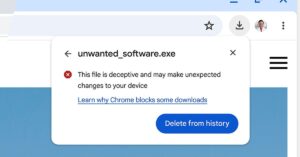/cdn.vox-cdn.com/uploads/chorus_asset/file/23926013/acastro_STK050_04.jpg)
On April 20th, as Twitter finally lived up to its longstanding promise to abolish legacy verified accounts, many users started categorizing the last remaining “blue checks.” There were the Elon fanboys, who angrily badgered formerly verified users about their unwillingness to pay $8 a month for a new checkmark. There were sheepish Twitter Blue subscribers who appreciated its extra features. There were celebrities puzzled to find they’d retained their verification despite (or, sometimes, because) of their vocal unwillingness to pay for Twitter Blue.
But there was also another, far less discussed group. When I clicked the Verified tab in my mentions, I’d once been greeted with a variety of journalist friends, activists, and the odd celebrity. Now there was only one kind of user populating the tab: sex workers.
Twitter has long been one of the friendliest, or perhaps just least hostile, social media platforms for sex work. As it launches into a slow death spiral, many sex workers are still paying for the platform. And that’s created a new kind of friction — as prominent accounts like Dril have urged fellow Twitter users to “Block the Blue” by mass-blocking subscribers. “I feel like my interactions have been dipping as Twitter gets less good overall but also have no choice but to attempt to keep the account verified,” says porn performer Vanniall.
It’s hard to say precisely how many sex workers are signed up for Twitter Blue, but it’s a sizable number — and to anyone familiar with the dynamics of modern sex work, it makes perfect sense. Where many professionals once worked for an agency or porn studio, a vast contingent are now independent. That leaves them a great deal of freedom but also new responsibilities. Whether you’re doing in-person work or modeling on OnlyFans, you — and pretty much you alone — are responsible for attracting clients to your metaphorical storefront. And while people have experienced a similar shift across the creator economy, sex workers’ options for social media are far more limited than most.
Past sex workers had a number of options for advertising, from the literal back pages of alt weeklies to the now-shuttered Backpage.com. But the current alternatives are fairly sparse. “The entire world has changed,” says Michael Stabile, director of public affairs for the adult industry trade group the Free Speech Coalition. Print publications aren’t a feasible advertising option anymore, and most online ad markets (including Google and Facebook ads) explicitly ban advertising for even legal adult services. Laws like FOSTA-SESTA have made mainstream platforms less tolerant of sexual content. Even big-name adult platforms like OnlyFans and Pornhub don’t do much to promote individual performers.
Twitter has long been one of the most XXX-friendly, or perhaps just least hostile, social networks
That leaves social media — and social media is not particularly XXX-friendly. Meta’s properties have hardline policies against nudity and explicit content, though many porn performers still use Instagram, hoping to fly under moderators’ radar and avoid a ban. While the buzzy platform Bluesky is currently quite notorious for its nudes, it’s tiny, and its future remains unpredictable. And as for TikTok — well, a site where users have to say “le$beans” instead of “lesbians” to get around content filtering isn’t likely to be a haven for sex workers.
But since its inception, Twitter has had a relatively hands-off attitude toward adult content. Posting porn clips may not be encouraged, but unlike nearly all other big platforms, it’s not explicitly banned. As a result, sex workers have flocked to it. “Most of my marketing is done on Twitter, Instagram, and several of the free porn channels,” says JW Ties, a longtime southwest Florida-based performer and producer. Lyrik Allure, who’s been using Twitter for sex work for 11 years, estimates that about 60 percent of traffic to their various pages (including a Fansly page and a Premium.Chat account) comes from Twitter. “It’s my main platform because a lot of platforms don’t support sex work,” says Allure.
Marketing isn’t the only benefit that Twitter brings to the table. Twitter also offers the chance to build community, organize political initiatives around anti-sex work laws, and connect with journalists (who, Stabile points out, are a group that’s equally dependent on Twitter). It’s hard to overstate how crucial the site is. Twitter, Stabile explains, is “almost universal in its adoption [among sex workers]. You can’t say that about any other platform. It just is the place, one of the first stops you make in terms of setting up a business.”
Which brings me back to Twitter Blue.
A number of Twitter Blue perks have obvious appeal for sex workers. Some of these aren’t unique to their industry, like getting prioritized in ranking, being able to upload longer and higher-quality videos, and being able to include more links in their bios. But Twitter Blue offers an aura of legitimacy that’s particularly valuable to people who are used to a precarious existence online. For one thing, paying for a service should theoretically make its staff less inclined to boot you off — an obvious boon for sex workers, who live in constant fear of their social media accounts getting shuttered without warning. “I haven’t had one violation since I signed up,” says Allure, who received frequent policy violation notices and believes their account’s visibility was limited before signing up.
“I feel like my interactions have been dipping as Twitter gets less good overall but also have no choice but to attempt to keep the account verified.”
Likewise, while Twitter Blue hasn’t stopped people from impersonating high-profile celebrities and politicians, it does add an extra barrier for catfishing and impersonation, problems that sex workers are particularly vulnerable to. Vanniall told me that she’s long been plagued by scammers using fake accounts to trick her fans out of money and even blackmail her. Before Twitter Blue, very few sex workers were deemed eligible for verification. After its introduction, she says “some fans have told me specifically they realized this was the real account” — though sadly, the main thing preventing impersonator accounts from signing up for Twitter Blue as well is a scammer’s own willingness to shell out $8.
Some sex workers feel confident that the Twitter Blue signup process has enough safeguards to prevent someone from impersonating them. During our phone call, Allure told me that they feel like the Twitter team is doing their best to stop fraudsters from using the service to run scams, noting that there is at least a nominal attempt to confirm that no one is using Twitter Blue for impersonation purposes.
But determined scammers have impersonated people in other fields where it’s worth the cost. And notably, when I recently searched for a sex worker friend on Twitter, her Twitter Blue-verified account was still completely absent from Twitter’s search results. Instead, I saw a bunch of imposter accounts pretending to be my friend — although so far, none of them were subscribed to Twitter Blue.
Twitter isn’t the only website offering paid verification. Meta recently announced a similar system for its sites, and some sex workers I spoke with are definitely considering signing up. But Instagram remains a much riskier bet for anyone talking about sex. At the end of the day, “Twitter is the biggest adult-friendly platform out there,” explains Ties.
Of course, there’s a trap here, too. Part of Twitter’s appeal is that it’s a mainstream platform that happens to be sex work friendly. If it’s no longer appealing for anybody else, that cuts off a huge amount of the audience sex workers are trying to reach. There’s a reason why porn-focused social media sites like Xdigg, a XXX Digg clone, never actually took off.
But for now, sex workers are drawn to Twitter Blue for the same reason they’re on Twitter in the first place: in a precarious industry, any potential leg up is well worth trying. $8 a month is a minimal price to pay if it helps sex workers maintain a constant flow of traffic — or, like Vanniall, helps them beat back scammers and catfishing. “Sex workers have always been incredibly resourceful,” says Stabile. “If they see a tool that’s going to be useful, they’re going to use it.”





